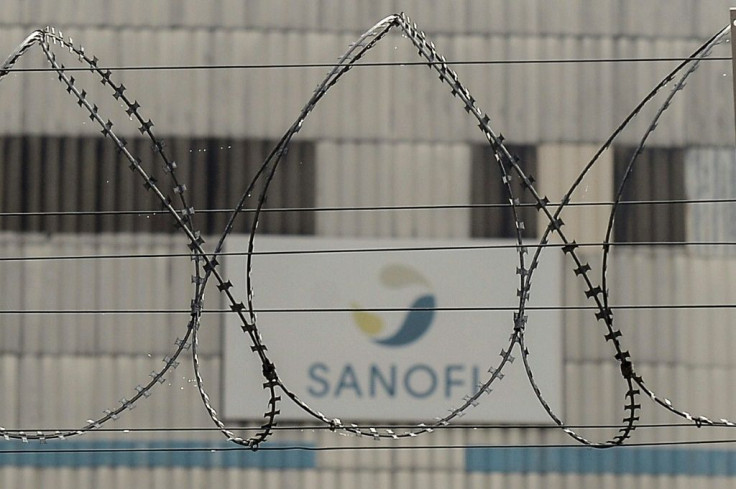French State, Sanofi Face Ruling In Birth Defects Case
A French court is scheduled to rule Wednesday on the responsibility of the French state in birth defects linked to an anti-epilepsy drug produced by pharmaceutical giant Sanofi.
Studies found that when pregnant women took the medicine, their children had an elevated risk -- between 10 and 40 percent -- of having congenital malformations, autism and learning difficulties.
Sanofi has sold the drug valproate -- marketed as Depakine, Depakote and Stavzor, amongst other trade names -- since 1967.
Between 15,000 and 30,000 children are disabled as a result of their mothers taking the drug, given to treat epilepsy and bipolar disorder, studies have found.
Parents of five disabled children now aged between 11 and 35 pressed charges against the state and health authorities acting on its behalf, bringing three cases to an administrative court in an eastern Parisian suburb.
On Wednesday judges will decide on compensation in these three cases and the extent to which the state, its health authorities and Sanofi are responsible.
The families' lawyer Charles Joseph-Oudin told AFP he expected a "clear and intelligible decision" from the administrative court, which handles cases involving the state and its institutions.
"There needs to be a clear decision in these three cases and clear guiding principles for the others, because there are hundreds of other cases," he said.
During the hearing last Wednesday, the court's advisory expert said that responsibility was split three ways between the state, Sanofi and doctors who prescribed the drug.

The state's responsibility for the three cases is between 20 and 40 percent, the expert said, adding the state knew about the risks regarding malformations from 1983 and from 2004 for learning disabilities.
Sanofi is facing separate charges of aggravated fraud and unintentionally causing injury, although under the French legal system the charges do not automatically mean the case will reach a courtroom, as prosecutors could decide not to move to trial.
The pharmaceutical company has denied any wrongdoing, saying it warned health authorities of the drug's risks from the 1980s.
Once the judgement is given on Wednesday, "Sanofi won't be able to use the excuse that the state is responsible to avoid forking out damages, as the responsibility of each actor will be defined", lawyer Joseph-Oudin said.
The court's expert has said families in these three cases should be able to claim up to 152,000 euros ($170,000) per person in damages.
The trial is the "outcome of several years of work", said Marine Martin, president of the umbrella association grouping victims' families APESAC.
But she deplored that 2004 was chosen as the date from when the state knew about the problems and failed to act, "which excludes 80 percent of victims, despite the fact that risks had been documented before then", she said.
France's other massive pharmaceutical scandal concerns the diabetes drug Mediator, prescribed for weight-loss but which could cause fatal heart problems.
The landmark trial opened in September and a ruling is expected early July.




















